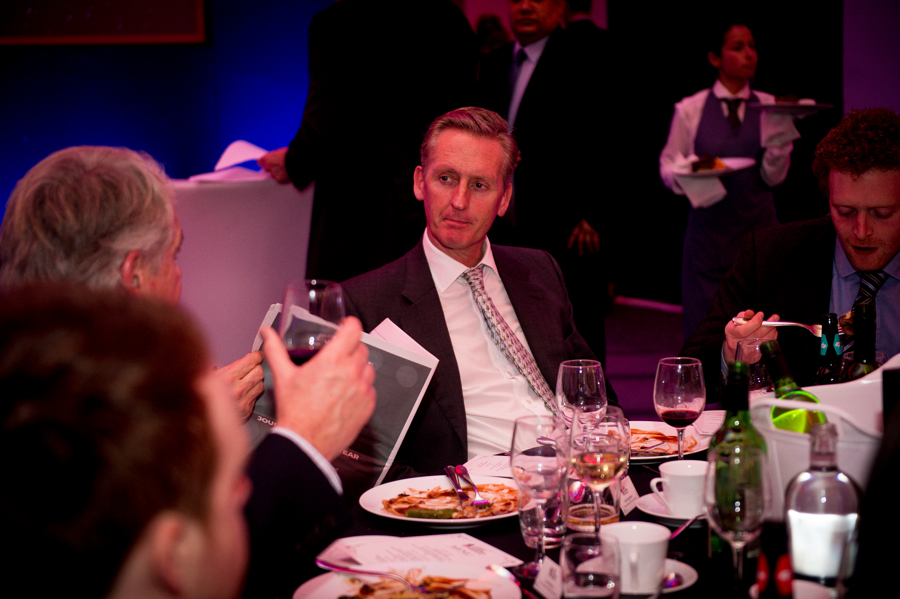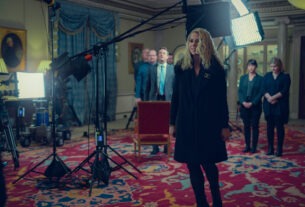Editor’s Note: Tim Walker, whose most recent book ‘Star Turns’ was published last month, writes about his time interviewing some of the biggest actors and entertainers the world has ever seen.
You can purchase Star Turns via the following shops:
I used to feel, as a teenaged reporter on the Evening Argus in Brighton in the Eighties, like a circuit judge – maybe more of a Witchfinder General – as I traversed Sussex, the county that the newspaper served, interviewing people like Vera Lynn, Donald Sinden, Dora Bryan, Michael Hordern, Harry Andrews and Malcolm Muggeridge.
Of course it was absurd that I should be sitting in judgment on folk like these at that tender age, but the series of interviews I did for the paper turned out to be the first of a long succession of encounters with famous, starry individuals that was to go on for almost 40 years and counting.
A British Press Award for that work for the Argus got me a job on my first national newspaper, The Observer, and suddenly I wasn’t confined to interviewing people with Sussex connections. There was a lunch with Lauren Bacall, other members of Hollywood royalty, such as Charlton Heston, Kirk Douglas and Richard Chamberlain, and friendships of sorts began to develop with people like Rupert Everett, Christopher Lee – I’d loved his Hammer films as a kid – and Ronnie Corbett, who wrote to me one day out of the blue and turned out to be a really wonderful friend.
I tried always to be fair-minded – too easy to write the nasty piece for the sake of writing the nasty piece – and I came to see how everyone I talked to – and maybe this is true of all of us – had one subject that they just didn’t want to get into. Often in those early days it was sexuality – the lovely Antony Sher now accepts that getting his publicist to tell me not to ask him about his private life was like ‘putting a gigantic neon sign over my head saying “this guy is gay.'”
Sexuality is something of course that we get a lot less het up about these days than issues of identity and Brexit, and maybe there will always be something that will get us going. I preferred, of course, doing interviews entirely on my own terms, but occasionally news desks would try to pick the awkward questions. ‘Ask Roger Moore whether a black man, a woman, a gay man or a handicapped man should play James Bond,’ I was once asked. Those cynical old hacks knew, of course, every one was a minefield for the actor.
Moore knew exactly what I was up to and laughed out loud. ‘I think of the scene in The Spy Who Loved Me, when I skied off the side of the mountain and my Union Jack parachute opened,’ he replied, laconically. ‘I just wonder if that would have been possible in a wheelchair.’ I liked Moore: the only point of fame to him was to try to do some good. ‘Write what you like,’ he said, ‘but just make sure you plug UNICEF.’
Brexit is a bore and it’s annoying how it divides people who would otherwise be friends. A few months before the referendum, I had a perfectly pleasant day in the Sussex countryside with the Ryan’s Daughter star Sarah Miles. We’d played table tennis, walked around her garden and she’d cooked me an impromptu lunch. Then for some reason she raised the issue of Brexit, sang a long pro-Brexit song she had composed and banged on about it so insistently I told her quietly that I thought she was off her rocker and that was the end of that.
I still of course admire Miles as an actress and maybe there is something inherently ridiculous about trying to sum up any human life – no matter how long the interview, or the series of encounters – in around 700 words. When I interviewed John Mills, it was just after a woman from The Times had seen him and she’d emerged from his home looking a little numbed. “She asked me to tell her all about my life,” Mills said when I sat down with him. “So I said ‘maybe this will help’ and chucked a copy of Who’s Who in her direction.”
Also read:
- People express their support for Dawn Butler MP after journalist Tim Walker’s viral tweets
- If VAR is to be successful, the rules of Football need to change
- Journalists must take responsibility for the mess we are in
Some people I detested on sight – such as the film director Michael Winner – and others – such as Stephen Fry – detested me, and then there were others, too, that I was vile about – Hugh Grant and Frances Barber come to mind – who unexpectedly became friends. Old hands such as Rod Steiger and Gwen Ffrangcon-Davies moaned how young actors would tell them how they wanted to be stars. To them, just doing the jobs they were given as well as possible was eminently more important than the possible consequence.
The women generally understood that stardom came at a cost more than the men for whom it often seemed to fill a kind of spiritual emptiness. Geraldine James and Greta Scacchi both saw it was going to be a lot more trouble than it was worth and they deliberately chose to duck it.
As a lifestyle choice, all things considered, I’d not personally recommend stardom. It’s kindness that you certainly remember a lot more than that.
_____________________________________________________________________________

Tim Walker is an award-winning journalist, broadcaster, author of two books and a playwright. His play ‘Bloody Difficult Women’ will be performed at Riverside Studios in London in February and March, 2022. You can purchase your ticket via the following link: https://riversidestudios.co.uk/see-and-do/bloody-difficult-women-8212/




